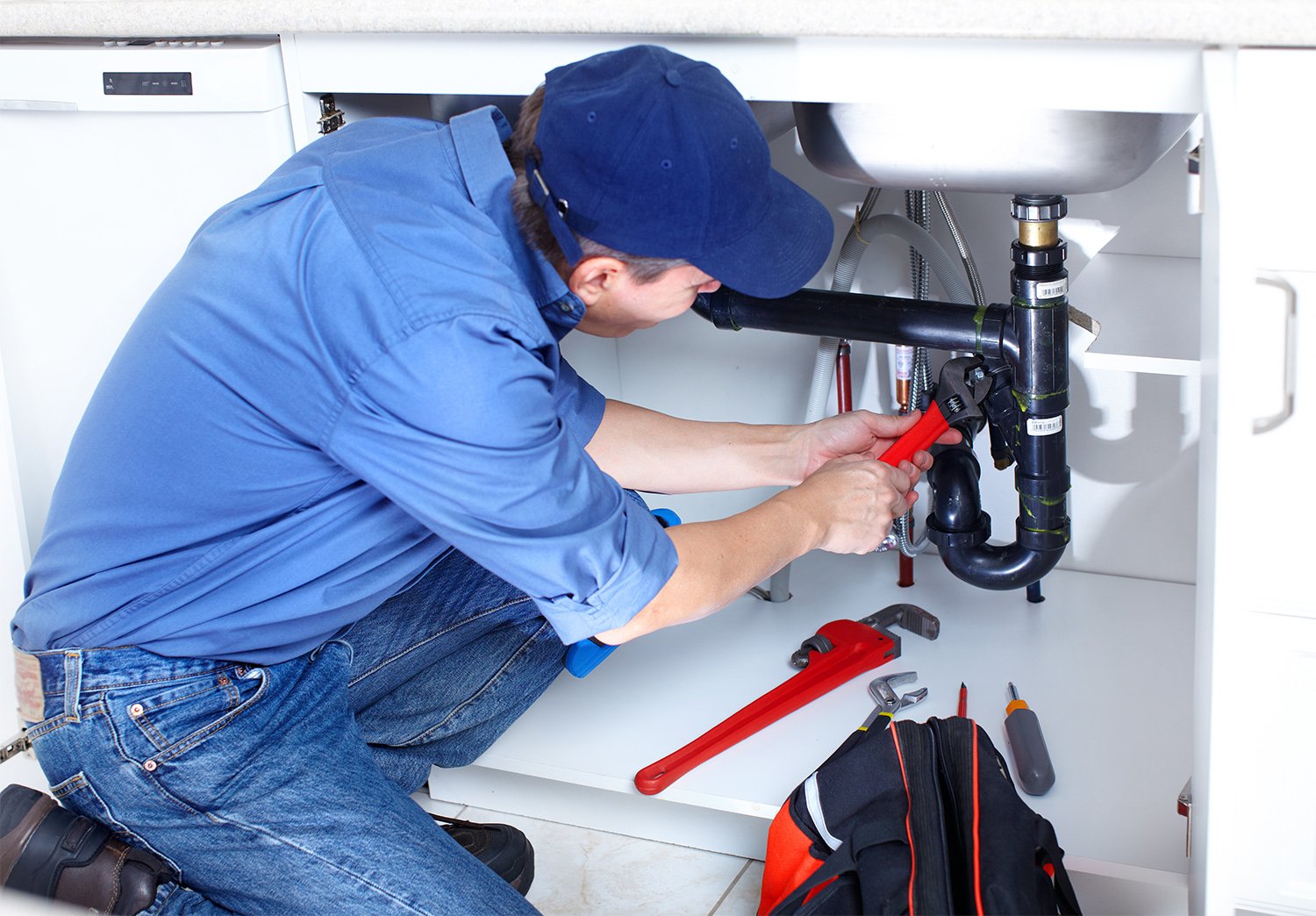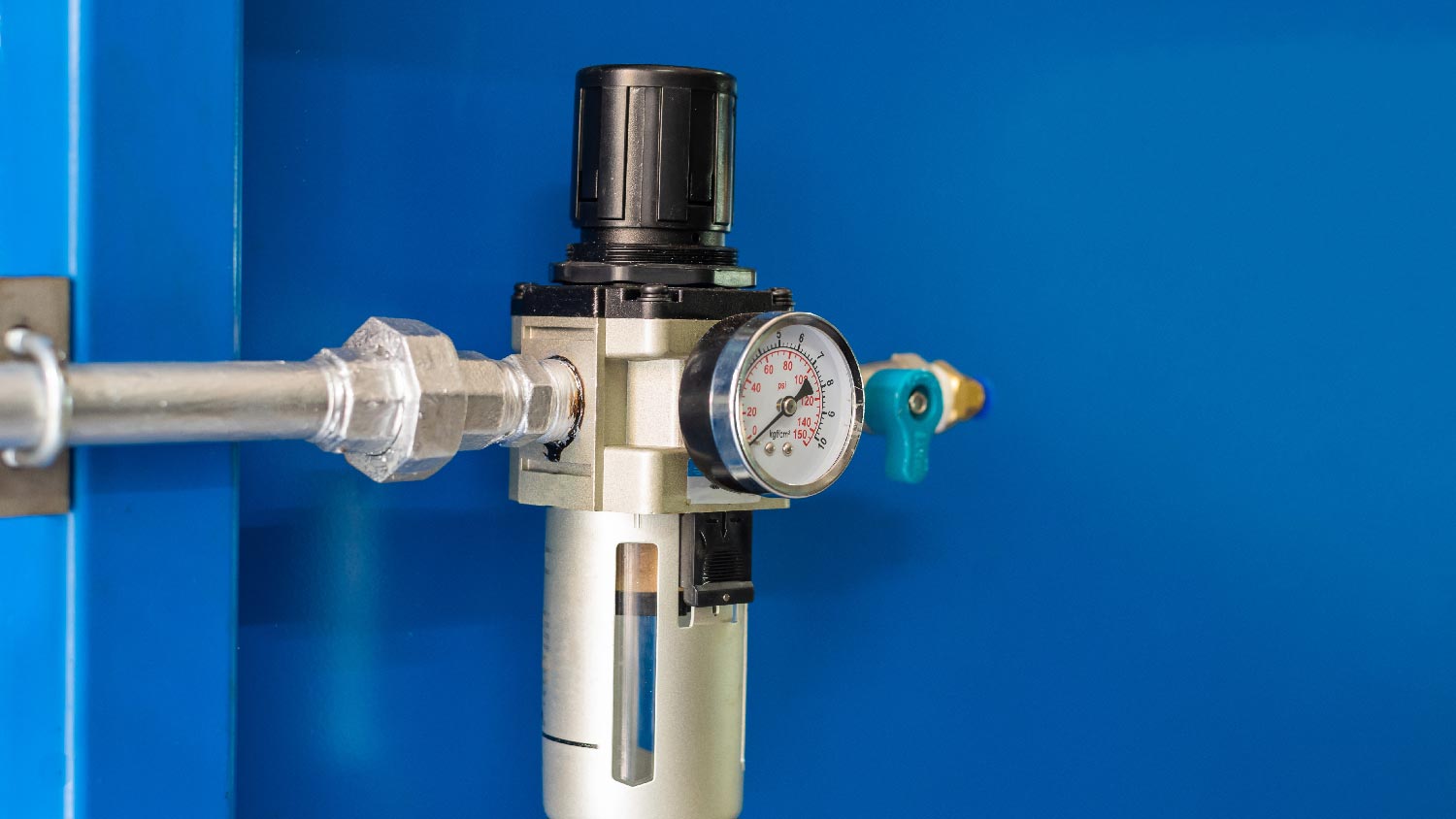
The average cost to replace a bathroom faucet typically ranges from $170 to $360. Faucet installation costs often vary based on the selected fixture hardware.
Licensed plumbers might be necessary for certain plumbing repairs


Licensed plumbers have the education to back up their craft.
Forty-four states require a plumbing license for big jobs.
Unlicensed plumbers can cause legal issues and code violations.
Verify licensing through your local licensing board.
Is it illegal to do plumbing without a license? The answer depends on the state and the work being done. Most states (44 of them, to be exact) require a plumbing license for big jobs, such as installing new plumbing lines or a tankless water heater, but most allow unlicensed plumbers to conduct simpler tasks, like clearing clogs from sewer lines and fixing a leaky faucet.
So, why do plumbers need an up-to-date license? Plumbing is serious work that deals with the basic functionality of a home. If a sewage line is poorly installed, for instance, it could back up and cause flooding, waterborne illness, or foundational degradation, among other issues. A plumbing license proves a certain level of expertise and minimizes the chances of poor workmanship.
A license is more than a piece of paper and thumbs up from a governing body. It’s an extra layer of protection from scams and subpar work. Here are reasons why you should hire a plumber with licensing:
Codes and regulations vary by location, as can the process of acquiring necessary permits. A licensed plumber will be familiar with codes, compliance rules, and and the process to obtain permits. That knowledge and experience can make the job go faster and ensure the home or business fully complies with current regulations.
Plumbing licenses come in different levels. Beginners are called apprentices, with the next level being journeyperson, followed by master plumbers. While apprentices start with no experience, the other two levels have varying work experience and additional education measured in years or hours, depending on the state.
A journeyperson can work independently but cannot own their own business. A master plumber can own a business, oversee large projects, and train other plumbers. All levels require continuing education to maintain a license, so they’re up to date on the latest technology and techniques.
The different levels let you know how much and the type of experience the plumber has. Unlicensed plumbers offer no such assurance.
The cost of plumbing repairs from an unlicensed plumber might look like a good deal, but in the long run, you’re taking what could be an expensive risk. From structural damage to your home, denied insurance claims, and health risks, hiring an unlicensed plumber can cost you much more than the total on the final invoice.
A licensed plumber is much less likely to work a scam where you’re out of money and the work still isn’t done. They can also diagnose problems and offer long-term solutions rather than quick fixes that may require repairs within a few months.
When this system works right, plumbing keeps your home healthy. Taking shortcuts or not following codes and safety standards can lead to structural damage during repairs and installation or pipe leaks from poorly done work.
Leaks or improperly installed boilers, water heaters, or fixtures can lead to serious problems and health risks. For example, water heaters that require natural gas have to be installed by a licensed plumber because of the risk of carbon monoxide poisoning.
A professional should always do gas hookups because of the serious dangers and risks involved. Signs you might need gas plumbing repairs are rust, damaged connections, or a gas smell. If you smell gas, turn off your appliance immediately and call a professional to inspect it.
Licensed plumbers often include warranties on work and materials for a specific time period. One year is standard, but the warranty could be longer or shorter, depending on the type of work.
During the warranty period, if something breaks, leaks, or doesn’t function as it should, the plumber or plumbing company takes care of repairs at no additional cost. A licensed plumber may offer an extended warranty, while someone without a license may not provide a warranty at all or a short warranty.
Most states require plumbers to have liability insurance that covers property damage caused during the work or injury suffered by the plumber. Plus, some home insurance policies will not cover damage caused by work done by an unlicensed plumber, putting you at greater financial risk.

Unfortunately, hiring an unlicensed plumber even for simple plumbing repairs and related jobs can be risky. Below, we’ll discuss some of the risks involved with hiring an unlicensed plumber.
Not only is it illegal for an unlicensed plumber to work in most states, but it’s also illegal to hire an unlicensed plumber to complete a job. If an unlicensed plumber mucks up the (literal) waterworks for your neighborhood, you could get fined or sued. Licensing forces a plumber to stay up-to-date on local laws, regulations, and policies. In other words, if an unlicensed plumber messes up, you could face legal consequences.
Licensing laws vary by state, so it’s important to check requirements and verify a contractor’s license before hiring.
Not all plumbers have your best interests at heart. Avoid common plumbing scams by making sure your contractor is fully licensed. Licensed plumbers are much less likely to attempt fraud or a scam, as you could report them and they would face a steep financial penalty or lose their license.
Certified plumbers must pass a background check before they can receive their license, which is just another way you’re insulated from fraud, theft, and other crimes. Hiring an unlicensed plumber means you never know who’s coming into your home, whereas there’s some guarantee that you’re not inviting a potential criminal or ill-intentioned individual onto your property.
Before signing a contract, check plumber licensing for the professional you’re considering hiring. It might seem a little complicated, but you really just need to know what to look for. Unlicensed plumbers typically have some warning signs—whether it’s poor reviews, no online presence, or an unwillingness to provide information about the company or individual plumber. The following tips can help you verify your plumber’s qualifications and ensure you get professional, safe, and legal plumbing work done.
If your contractor is licensed and insured, you can ask to see a copy of their license and insurance. If they refuse to show you, it’s a major red flag. A licensed contractor should have no issues proving their qualifications. They’ll carry their state license with them and will be able to produce an up-to-date copy of their insurance immediately.
Many cities and states have a registry of licensed contractors—you just need to know where to find it. For example, in New York City, you can verify plumber licensing on the Department of Buildings website. Arizona has an official Arizona Registrar of Contractors. In Alaska, you can check with the Department of Labor.
If you don’t know where to look, Angi’s contractor licensing tool can point you in the right direction.
Reputable plumbers often belong to trade organizations. Some are national organizations, like the American Society of Plumbing Engineers (ASPE), the Mechanical Contractors Association of America (MCAA), or the Plumbing-Heating-Cooling Contractors Association (PHCC). Others are local organizations like the Plumbing-Heating-Cooling (PHCC) of California and the PHCC Master Plumbers Wisconsin Association.
Search for these organizations in your area, and then reach out to them or use their online databases to search for your plumber.
Word of mouth isn’t a surefire way to find a licensed plumber, but it can certainly help. Ask your neighbors, family, and friends for referrals. You can even check online reviews. Before you hire a plumber, ask for a couple of references. If you don’t know where to start, search online for a top-rated plumber near you.
The average plumber costs $45 to $200 per hour. If a price seems too good to be true, there’s usually a reason. Interview at least three contractors to get a sense of local prices. If one quote is significantly lower than the rest, it could be a red flag indicating that the work will be done by an unlicensed plumber or handyperson.
The states below are the only ones in the country that don’t require licensing for plumbers:
Kansas
Missouri
Nebraska
New York
Pennsylvania
Wyoming
While these states don’t have statewide plumber licensing laws and regulations, most municipalities within these states do require plumbers to be licensed. That means that, even if you live in one of these six states, your local building department might still require that you hire a licensed plumber.
No matter where you live, always check on the licensing status of a plumber before hiring them for a big job, if only to confirm the level of expertise for which you’re paying. Make a habit out of checking the licensing status of any potential contractor no matter where you live.
From average costs to expert advice, get all the answers you need to get your job done.

The average cost to replace a bathroom faucet typically ranges from $170 to $360. Faucet installation costs often vary based on the selected fixture hardware.

A main water shut-off valve controls water flow for your entire home. Here we break down the cost to replace a main water shut-off valve.

Repairing a main water line is an urgent matter, so use this guide to get an idea of how much main water line repairs cost to act fast.

Find out the average water pressure regulator replacement cost, key price factors, and tips to save on your project. Get transparent, expert-backed cost info.

Looking for the best kitchen sink materials? We’ve got you covered. Here’s a comprehensive list of kitchen sink materials and how they measure up.

Before purchasing and installing a new toilet, you need to know the toilet rough-in measurement to ensure proper integration. Here’s how to get it done.